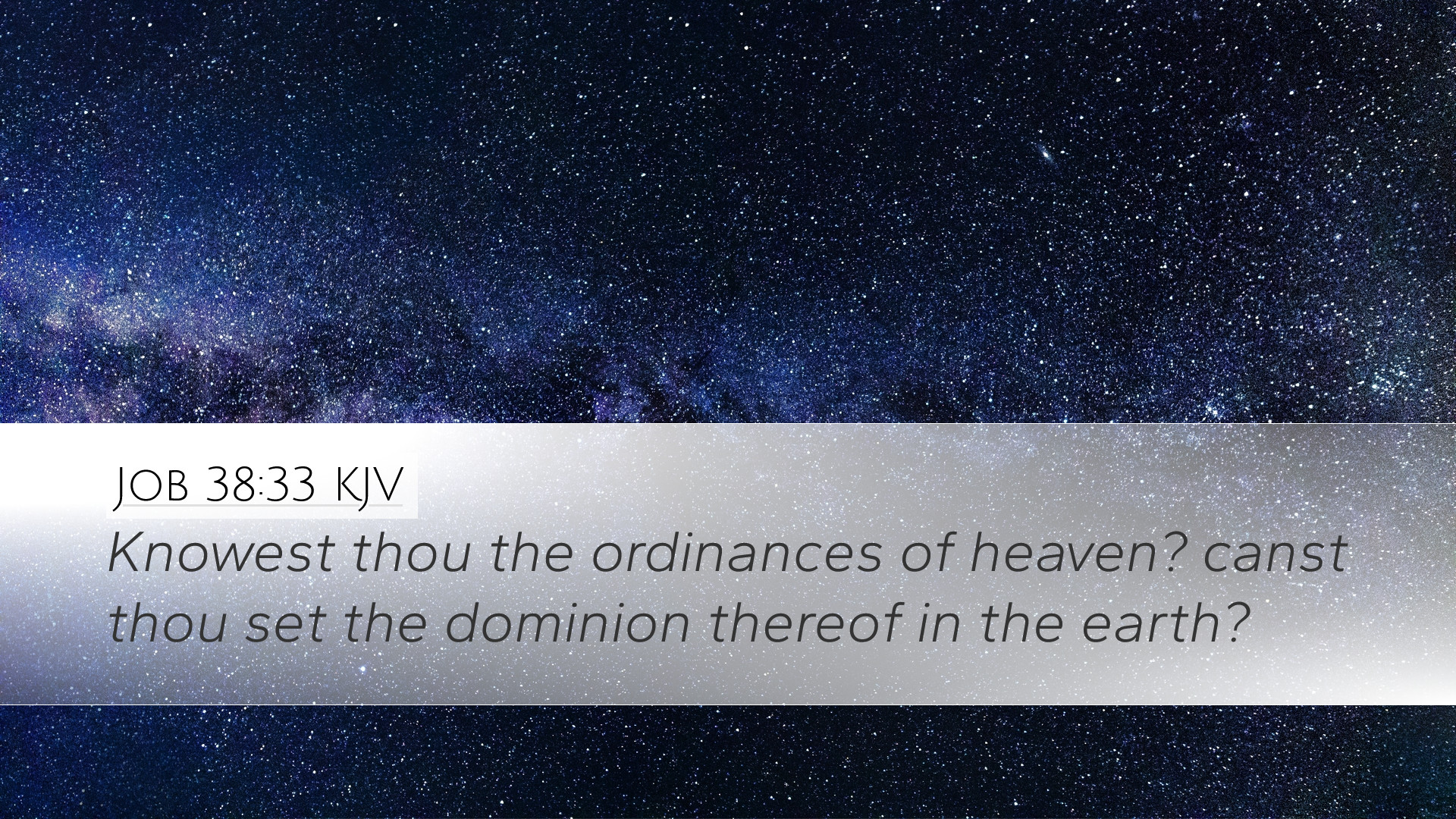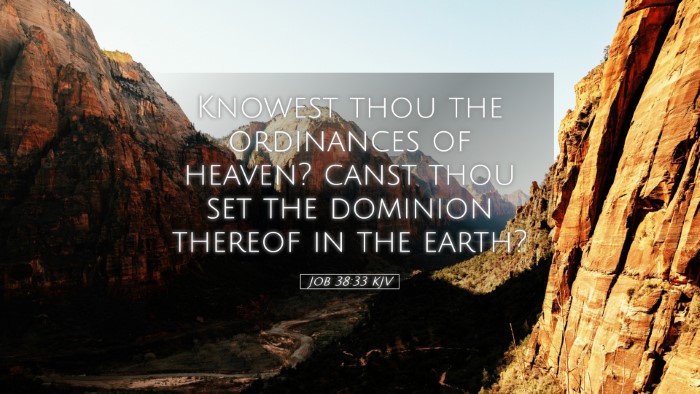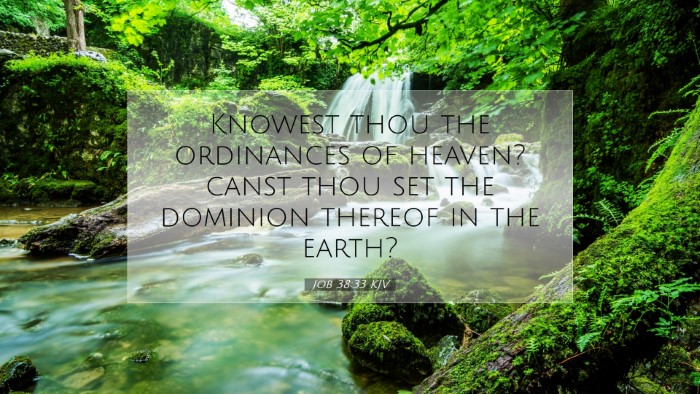Commentary on Job 38:33
Text of Job 38:33 (KJV): "Knowest thou the ordinances of heaven? Canst thou set the dominion thereof in the earth?"
Introduction
The verses in Job 38 mark a significant turning point in the narrative of Job. After thirty-six chapters of dialogue, complaints, and disputes, God finally speaks out of the whirlwind, posing profound questions that challenge Job’s understanding of the divine order. Job 38:33 encapsulates a divine interrogation about the nature of the cosmos and the human capacity to comprehend or influence it.
Contextual Analysis
This verse occurs in a section where God addresses Job, offering insights into His creation and governance of the universe. The "ordinances of heaven" refers to the laws and principles that govern not just the natural phenomena but also spiritual realities. The rhetorical questions posed by God serve to highlight Job’s limitations as a human being and the vastness of God's wisdom and authority.
Theological Insights
1. God’s Sovereignty: The query about the "ordinances of heaven" reminds believers that God is the ultimate Sovereign. He has established rules that govern creation, and it is by His will that the universe operates in order. This challenges the anthropocentric view that humanity has ultimate control over creation.
2. Human Limitation: The rhetorical nature of the question implies that Job—and humanity at large—does not know or has control over these ordinances. It illustrates human limitation in understanding God’s ways. Matthew Henry notes that the more we delve into the complexities of the universe, the more we recognize our ignorance.
3. The Inaccessibility of Divine Wisdom: Albert Barnes reflects on the idea that while there is much that science can uncover about the natural world, there remains an unbridgeable gap between divine wisdom and human understanding. God’s ways are past finding out (Romans 11:33). The ordinances of heaven encompass realms beyond human grasp, suggesting that any attempt to alter divine cosmic laws is hubristic.
Reflection on the "Dominion" of Heaven
The term "dominion" points towards authority and governance. Adam Clarke emphasizes that this indicates the rule that God has over spiritual realms, and posits that creation reflects God's kingdom. The broader implication is that humanity's attempts to establish dominion on Earth must align with God's sovereign will. Job’s questioning of his suffering leads to a greater understanding of God's ultimate plan and governance.
Practical Application for Believers
- Submission to God’s Authority: Recognizing that God governs the universe leads believers to submit to His authority in their lives. Job is reminded that his understanding is limited, prompting humility before God.
- Trust in Divine Order: Understanding God's control over the ordinances of creation instills trust. Even amid suffering or chaos, believers can cling to the knowledge that God has a purpose and that His ways are ultimately good.
- Encouragement in Trials: Like Job, when facing adversity, believers are encouraged to seek a deeper relationship with God. The reminder that God is sovereign over all creation offers comfort that He is aware of our struggles and is actively involved in our lives.
Conclusion
Job 38:33 serves as a profound reminder of divine mystery. It asserts God’s complete authority over the universe while illustrating the limitations of human understanding. For pastors, students, theologians, and scholars, this verse provides a foundation for discussions on divine sovereignty, human existence, and the nature of suffering. As they engage with the biblical text, they are invited to grapple with the complexities of faith in light of God’s omniscience and omnipotence, leading to a richer understanding of their Creator.


